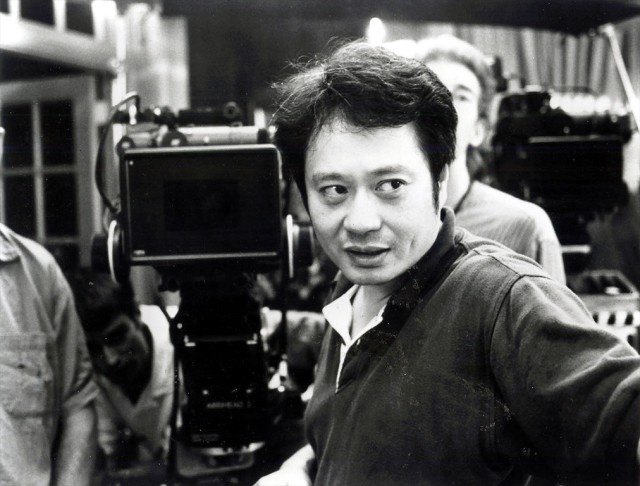Ang Lee is a quiet and baffling auteur. Someone without a whole lot to say about his craft but like an operatic conductor, he orchestrates visual symphonies that no genre can contain. He can touch any genre and make it his own and always with a quiet felicity that juggles the magnificent, clutter breaking sweep of Crouching Tiger, Hidden Dragon with the refined, self-contained elegance of Sense And Sensibility and the mainstream mega -budget aspirations of Hulk, a brave and culture-redefining Brokeback Mountain and now Life of Pi, that is on its way to becoming an instant, cult classic. And these are only a few of the film he has made. To understand the rich texture of his cinema, we have to understand the influences that shaped him.
**
Perhaps the reason why he can fearlessly approach various cultural narratives in his cinema is because his idea of identity is fluid and not fixated to one place. His parents moved a lot between China, Taiwan and the US and because of the multiple shifts in history and geography, he is an adaptive film-maker who uncannily grasps the visual and cultural references of every different narrative. He also once famously described himself as an eternal “outsider.’ The sense of alienation in many of his films, his understanding of human struggle for vindication and a full circle can perhaps be traced to his early life and to six years of unemployment when he was supported by his wife and battled inner doubts.
**
In most of Ang Lee’s films, you see a perfect balance between the lyricism of language and its visual projection. He likes to pick up short stories and novels and play around with their big moments and almost invisible sub-text. All of this could have something to do with the fact that he grew up on a steady diet of Chinese classics and studied arts. He then irrevocably fell in love with cinema after watching Ingmar Bergman’s slow-burning, Swedish revenge drama The Virgin Spring (1960) which like many of Lee’s films, grappled with not just one but many themes. On the surface The Virgin Spring is a human story but on another it is about the role of religion, mythology, faith in God, doubt, loss of innocence, fear and the meaning of evil. It is no surprise then that Life of Pi based on Yann Martel’s award winning novel checks all the above boxes and is almost a culmination of his journey as a film maker who is always craning his neck to see beyond the obvious.
**
Life of Pi, is not just a film that has the ingredients of big-budget, 3-D cinema blockbuster. It is the kind of film we need to see in the age of human disconnection with nature, with other species, with each other, and the spirit that must find something beyond religion to feel at home in the universe. Lee brings his instinctive feel for the potential of the written word to the screen and transforms he screenplay into a series of stunning visual allegories. Small boat, big ocean. The tumult of storms and the utter silence of desolation..both testing the limits of human endurance. Life forms we must protect if we want to survive as a species. The connection between all living forms. And fear and anger that really are projections of what lies within than what is around us. The universality of human stories.
**
Of the story of an Indian boy with a French name who on his way to Canada in a Japanese ship, finds himself in the middle of a vast expanse with no one to turn to but his own version of God and his willingness to face his fears and adapt and change to every new challenge. Life of Pi is a work full of staggering metaphysical possibilities and only Lee could have done full justice to it. And not just because his grasp over his craft is faultless but because the Life of Pi is a lot like the life of Ang Lee. Pi could be Lee himself in a little boat of his own, travelling from one continent to continent, finding new islands along the way and taking us along everytime on a journey that shows us not just what divides us as a race but what connects us.
**
This story was earlier carried in The New Indian Express..
Reema Moudgil has been writing on art, theatre, cinema, music, gender issues, architecture and more in leading newspapers and magazines since 1994. Her first novel Perfect Eight ((http://www.flipkart.com/perfect-eight-9380032870/p/itmdf87fpkhszfkb?pid=9789380032870&_l=A0vO9n9FWsBsMJKAKw47rw–&_r=dyRavyz2qKxOF7Yuc )won her an award from the Public Relations Council of India in association with Bangalore University. She also edited Chicken Soup for Indian Woman’s Soul and runs unboxedwriters.com. She writes art catalogues and has scripted a commissioned documentary or two. She has exhibited her paintings in Bangalore and New York, taught media studies to post graduates and hosts a daily ghazal show Andaz-e-Bayan on Radio Falak.






